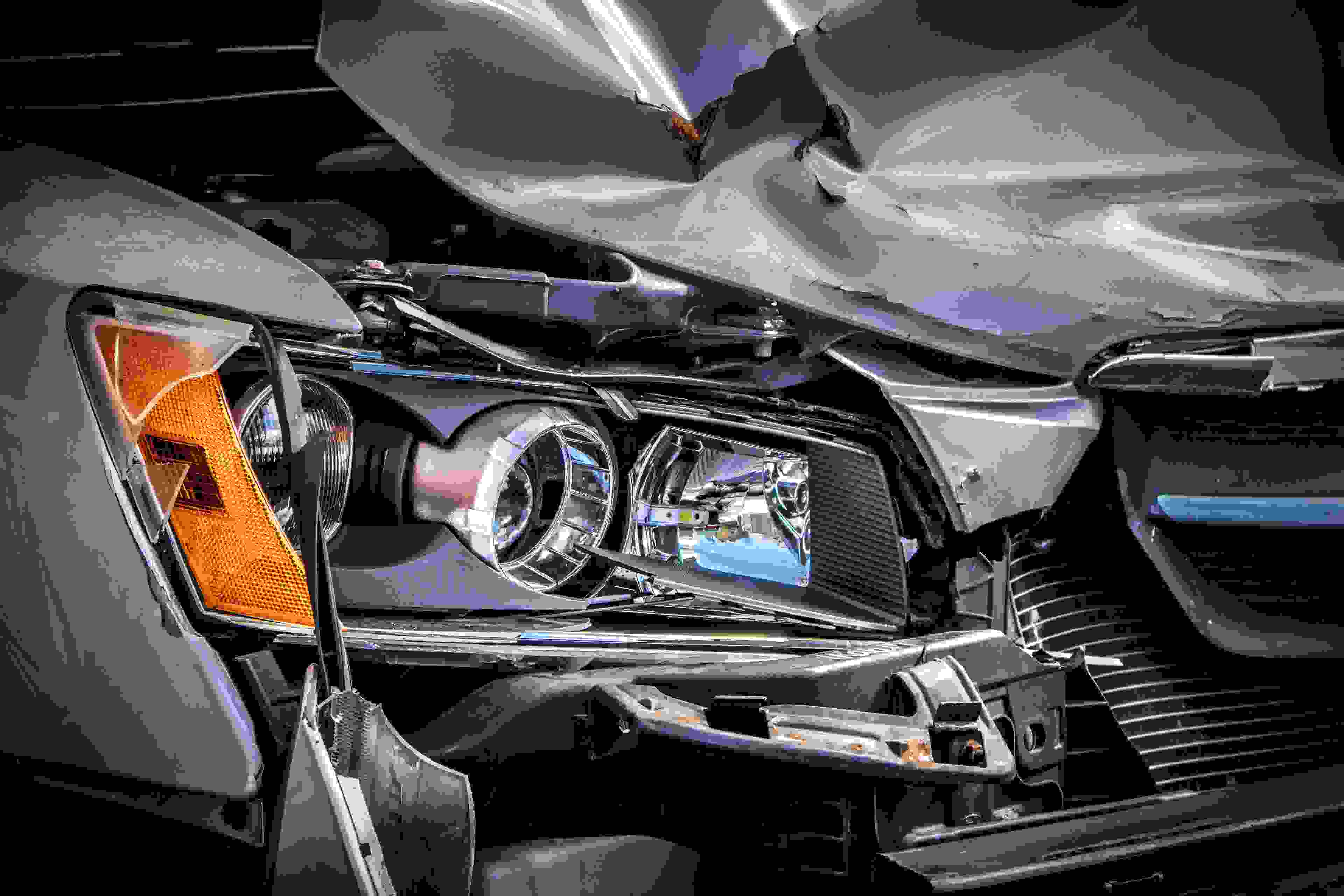Delaware car accident laws impose harsh penalties–including license revocation and possible imprisonment–for drivers who fail to stop at an accident and exchange information with other parties. In addition, the state’s modified comparative negligence law limits the amount of damages you can recover following an accident.
Statistics say that the average American will be in four car accidents in their lifetime—and when it happens to you, you’re not likely to be at your best. Rather than waiting for the worst to happen, arm yourself in advance with a robust understanding of the laws governing car accidents in Delaware.
In this guide, we're breaking down the law so you don’t have to! We’ll run through the sections of the Delaware Code that apply to car accidents and look at reporting requirements, car insurance
minimums, and the rules surrounding personal injury and fault. 
Get rewarded for safe driving. Earn points and unlock benefits. Totally free.
Start earning nowWhat to do after a crash: Delaware car accident reporting laws
You may already have a general idea of what to do after a car accident
: get to safety, check for injuries, and exchange information with the other driver. But in Delaware, the rules are even more detailed—and the possible punishment for failing to follow them could be extreme. According to Title 21 Section 4201
of the Delaware Code, any driver involved in an accident that causes injury or property damage must: Stop immediately as close as possible to the scene of the accident
Check to see if anyone involved in the accident was injured or killed
Move any damaged vehicles, if possible, so that they’re not blocking traffic
Provide their name, address, and vehicle registration
number to the other driver or the owner of any property damaged by the collision, and show a driver’s license
Don’t forget to exchange insurance information with the other driver(s) as well. If you’re the only party who sustained an injury or property damage, the law permits you to leave the scene, but you must report the accident to the police immediately.
In general, failure to stop at the scene and check for injuries could result in fines from $230 to $1,150 or jail time from 60 days to 6 months. In addition to those penalties, anyone who violates Section 4201 will be subject to a mandatory six-month license revocation—a huge problem if you need your car to get around!
If anyone was injured or died as a result of the accident, you have added legal responsibilities—and the consequences for neglecting them are even more severe. Section 4202
requires any driver involved in such an accident to render reasonable assistance to anyone injured in the crash, including: Driving them to a hospital or doctor’s office
Waiting at the scene for emergency personnel to arrive
If you’re late to work and feel like you can’t afford to stay at the scene, keep this in mind: for anyone caught committing a hit and run in Delaware
, the Delaware Code imposes fines of $1,000 to $3,000 or imprisonment between one and two years. If the accident resulted in serious injury, your license could be revoked for a full year, and if it caused a death, you’ll lose your driving privileges for two years—and your record will show a Class E felony. No matter what, you must immediately report a car accident to the police if it involved:
Property damage on a public highway of $2,000 or more
Any suspected alcohol or drug use
The bottom line? Stay at the scene of any Delaware car accident until you’re sure you’ve discharged all your legal duties. It’s also wise to report the accident to the police unless it’s a fender bender that only caused minor property damage.
Financial responsibility and coverage minimums: Delaware insurance laws
Another important step following a car accident? Filing an insurance claim. Delaware’s car insurance laws
make this slightly easier than in other states since all drivers are required to carry liability insurance
and personal injury protection (PIP)
in the following amounts: $50,000 of bodily injury liability per accident
$15,000 of PIP for one person injured in an accident
$30,000 of PIP for all persons injured in an accident
What does that mean for you? Well, if the other driver was at fault in the accident (e.g., if you were struck by someone texting and driving), you can file a third-party claim with their insurance company, and their liability insurance will payout. But no matter who was at fault, you can file a personal injury protection claim with your own insurance company to cover medical bills, lost wages, and even rehabilitation costs associated with the accident.
Just remember to file car insurance claims
promptly. Although there’s no concrete deadline stating how long you have to file a claim
, most companies require claims to be filed within a “reasonable” period following an accident. Claiming damages after an accident: Delaware’s personal injury laws
There’s one more way to claim damages following a car accident: filing a personal injury lawsuit. Due to Delaware’s statute of limitations for personal injury claims, you must file any lawsuit within two years following a car accident. The exact terms are laid out in Title 10 Sections 8107
and 8119
of the Delaware Code, and they apply to all personal injury lawsuits—not just those involving car accidents. That might sound like a generous window, but keep in mind that some of the pain and suffering that comes from a car accident can have a long, slow-burning fuse. If you sustain an injury that causes chronic pain, mental confusion, or other long-term effects, it might take you two years to really become aware of the depth of the harm—by which point you’ll have missed your opportunity to claim damages.
To avoid missing that window, keep careful track of any new health problems, pain, or other negative impacts that follow a car accident. Whether you’re struggling with frequent headaches, panic attacks, or a slow-healing injury that’s keeping you out of work, a personal injury lawsuit could help you recover some of the money you’ve lost to medical bills or missed paychecks.
Who’s to blame: Delaware’s comparative negligence law
Exactly how much you can recover through a personal injury lawsuit depends on Delaware’s comparative negligence law
, which determines how much parties can collect based on their level of fault. Like many states, Delaware adheres to a modified comparative negligence system outlined in Title 10 Section 8132
of the state code. If you’re not versed in legalese, here’s what that means: in Delaware, you can only collect damages in proportion to your level of fault for a car accident—and if you’re more than 50% at fault, you won’t be allowed to claim any damages at all.
Let’s look at an example. Olivia is driving down Division Street in Dover
on her way to Food Lion for groceries. Because she’s hungry, she’s going about five miles over the speed limit. As she approaches an intersection, Liam runs a red light in front of her because he’s texting a friend about evening plans. Both drivers exchange information, and when she develops chronic headaches a few months later due to a whiplash injury, Olivia files a personal injury lawsuit against Liam for $10,000. Because she was exceeding the speed limit, Olivia is partially at fault for the accident and won’t be able to collect the full $10k. But exactly how much she can claim—and whether she’ll get any payout at all—depends on exactly how much blame insurance agents assigned to her in the accident.
Liam’s double violations—running a red light
and texting while driving
—are more serious than her speeding ticket
, so let’s say Olivia is 10% at fault. That means she’ll only be able to recover $9,000 in damages. If Liam tried to sue, on the other hand, he likely would not be able to claim any damages since he was over 50% at fault. How to save money on car insurance in Delaware
Car accidents aren’t just terrifying at the moment—they can continue to impact you in serious ways for months or years to come in the form of higher car insurance
premiums. If you’re looking at a rate hike in the aftermath of a crash, it’s time to shop for new insurance. Jerry can help with that: as a licensed insurance broker, Jerry
can comb through rates from over 55 providers in just 45 seconds to find you customized quotes that won’t break the bank. On average, Jerry users save over $800 a year on car insurance! But it’s not just savings you sign up for when you shop with Jerry. Unlike other comparison services, Jerry won’t force you to call insurance companies or fill out duplicate forms, won’t sell your information, and won’t send you unwanted calls—ever. Switching with Jerry's trustworthy super app
is quick and painless! “I signed up for a new policy with Jerry’s
help. I ended up saving $236 a month after my switch. Thank you, Jerry!” —Adelaide C.
 4.717k Ratings
4.717k Ratings5M+Drivers Joined
7M+Cars Garaged








